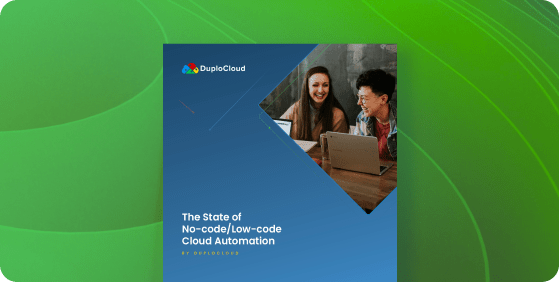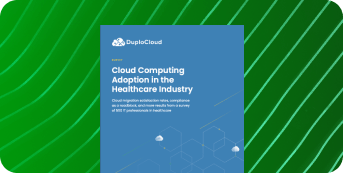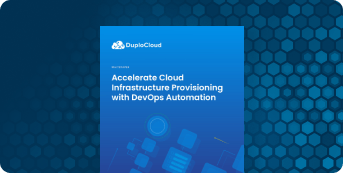No matter your industry, if your company has data in the cloud you’re going to need to adhere to accepted regulatory standards.
It’s not just cloud-based organizations and cloud-native applications that need to be concerned with how they store and use their data; cloud security compliance is a mission critical concept for any company with data in the cloud. A patchwork of regional and type-specific security standards can make it complex to figure out what compliance really looks like, but no matter the details, investing in compliance is always a smart business move. Here’s what businesses need to know about regulatory compliance when it comes to the security of data in the cloud.
What Is Cloud Security Compliance?
Cloud security compliance is the practice of adhering to official standards and regulations that govern how data can be stored and used. These standards can be set by local, state, or national governments, and are often accepted and upheld by international organizations as well. Some common cloud compliance standards include the Health Insurance Portability and Accountability Act (HIPAA), the Payment Card Industry Data Security Standard (PCI DSS), and the General Data Protection Regulation (GDPR).
Need to brush up on the basics of Cloud Compliance? Check out “Cloud Compliance in 2023: A Comprehensive Guide”.
Who Is Responsible for Cloud Compliance?
While some companies have dedicated compliance teams, it’s often network, security, or IT teams that are tasked with managing cloud security compliance. Even so, maintaining compliance should be a collaborative effort between technical, legal, and even leadership teams within the company. Executive leaders and board members contribute what is called cloud governance; cloud compliance and governance go hand in hand because senior executives provide critical oversight and guidance connecting core business objectives with the nuts and bolts of adhering with cloud security compliance standards.
What Are the Costs of Non-Compliance?
The costs associated with cloud security and compliance can start to add up quickly, but they’re nothing compared to the cost of non-compliance. The truth is that compliant companies are more likely to face slower development pipelines, risk management obstacles, and a gap between skill and demand when it comes to staffing engineering and security teams.
But facing these obstacles in order to achieve compliance will help companies avoid even higher costs down the line; in the United States, the average cost of a security breach can reach $8.64 million. And before a company ever reaches that point of cloud disaster, there are countless costs, fines, and penalties designed to incentivize investment in the many steps compliance requires. These are some of the most pressing costs of non-compliance:
Fines and penalties
Non-compliance is a preventable situation, but when regulatory bodies, governments, or standard-setting organizations find that a company is not in compliance they can issue fines as high as $250,000.
Legal fees
On top of the penalties handed down by regulatory authorities, company employees can be subject to legal prosecution. That means court fees, lawyer fees, and could even lead to jail time, regardless of whether the company or the employee foots the bill.
Are you cloud migration ready? Cloud migration can set the foundation for your organization's future. Make sure you're prepared and compliant with our free checklist:

Revenue and Reputation
While penalties are paid and litigation unfolds, companies are focused on cleaning up security messes instead of achieving core business goals. Losing revenue after being found to be non-compliant is one thing — losing face after a major data breach is another. In that sense, achieving cloud security compliance helps protect both bottom lines and company reputations.
Human resources
Companies can (and sometimes must) terminate employees that play a role in their non-compliant status, which is both a punishing measure and a preventative step to safeguard future security. But identifying, interviewing, and onboarding new talent is an expensive process.
What Is the Best Way to Achieve and Maintain Compliance?
The first step is to determine which security standards apply to your company. There are many elements that can trigger different compliance standards, so make sure to take stock with all your teams and stakeholders. Compliance needs to be a holistic company-wide effort; one broken link in the chain can lead to non-compliant status for everyone, regardless of where the issue occurs in the company.
- Geography: Where you do business and where your customers live factor in here. GDPR is European standard, for example, and the California Consumer Privacy Act (CCPA) is a state-specific data security regulation; if you do business in the EU or in the state of California, or if you collect data from clients living in those regions, your company likely needs to comply with their standards.
- Data type: What kind of data are you dealing with, storing, or using in the cloud? Credit card information falls under the jurisdiction of PCI DSS, for example, and patient data or medical details are governed by HIPAA and its various amendments.
Once you determine which cloud security compliance standards apply to your company, you’ll need to identify and implement all the relevant security controls. Each standard has its own requirements and best practices, so be sure to work with the tools and guidelines issued by each regulatory authority. You can also use widely-accepted security standards set by the International Organization for Standardization (ISO) or the National Institute of Regulations and Technology (NIST) to set a baseline for security compliance based on your company’s specific structure and needs.
There are also external steps companies can take to ensure regulatory compliance. Internal auditing is an important practice to ensure all the right protocols, policies, and controls are in place while building and running a compliant business, but third-party auditing is a valuable signal to customers, vendors, and investors alike that your company has been fully vetted. Publishable audits like SOC reports are widely accepted as a sign that companies have all the right compliance measures in place. Cloud certifications also go a long way toward demonstrating that your team has all the relevant knowledge and resources to build and maintain compliant cloud environments.
Is it Possible to Achieve Compliance While Minimizing Time to Market?
Achieving and maintaining compliance takes time and effort, but the process doesn’t have to slow down business progress. DuploCloud helps startups and small- and medium-sized businesses speed up the compliance process from start to finish thanks to low-code and no-code features that provision cloud-native applications that are already fully compliant out-of-the-box. Working with DuploCloud makes it easy for companies of all sizes to minimize time to market by designing, developing, and deploying fully compliant cloud-native applications from the ground up. Want to learn more? Contact us today.









